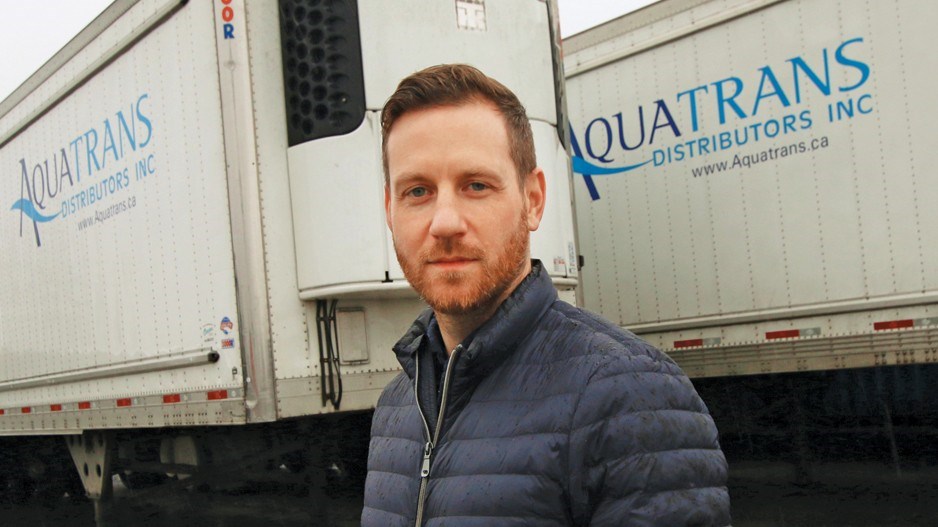When salmon farms began to appear in B.C. in the late 1980s and early 1990s, it wasn’t because there was a big demand for farmed Atlantic salmon in B.C.
It was because B.C.’s coastline is etched with many inlets and coves that make ideal locations for open-net salmon farms, which serve a market primarily based in the U.S., followed by Asia.
Most salmon farms in B.C. are located on or around Vancouver Island, but many of the supply chain businesses that provide the sector with feed, other supplies and transportation are based in the Lower Mainland.
Delta’s Aquatrans Distributors Inc. is one of about a dozen Lower Mainland companies that service the salmon farming industry. A little over a year ago, things were looking good for the company, which employs 75 people and operates a fleet of trucks, that serves the Pacific Northwest.
Aquatrans had planned to expand with a new depot on Vancouver Island and had just acquired property in Campbell River when Prime Minister Justin Trudeau announced during the last federal election that his government would phase out open-net fish farming in B.C.
The company hit the brakes and has had to scale back its expansion plans.
“The Liberal government just dropped the bomb on us,” said Aquatrans general manager Ryan Brush. “It just felt really impulsive and felt like a knee-jerk reaction to some of the well-funded activists out there who are running off information from 15 years ago.”
The original plan for a 10,000-to-20,000-square-foot depot in Campbell River has now been scaled back to about half that size.
Other companies serving the sector include Mowi (formerly Marine Harvest), which has a fish processing plant in Surrey that employs about 70 people, according to the BC Salmon Farmers Association. Ewos-Cargill employs roughly 100 people in a Surrey plant that makes feed for fish farms.
Aquatrans started in 1987 to serve the nascent aquaculture industry and has grown and diversified. The salmon farming sector now accounts for about 60% of the company’s business. The prospect of 60% of Aquatrans’ business evaporating by government fiat is unsettling, Brush said.
The federal mandate orders that open-net fish farms be phased out and moved to some form of closed containment – land-based systems, for example. Few in the industry think land-based fish farms will be built in B.C., at least not without sizable government subsidies.
It doesn’t make economic sense, they say, to invest tens or even hundreds of millions of dollars in remote areas of B.C., when the market is hundreds or thousands of kilometres away. A land-based system can be built virtually anywhere, so anyone investing in a land-based system is more likely to set up closer to major markets.
“Look at the data, look at the science and look at the impacts,” Brush said. “There are millions of pounds of fish being produced weekly that just can’t be replicated on a whim.”
Brush doesn’t believe land-based salmon farms will replace open-net fish farms in B.C., if they are forced to shut down, and companies like his now aren’t sure what the future holds.
Many fish farms concerns expressed 10 or 20 years ago were valid. There were concerns about effects of fish waste on the benthic environment, the use of other fish to feed salmon, the use of hormones and pesticides, and sea lice proliferating at fish farms and spreading to wild stocks.
Over the years many of those concerns have been addressed through technology and innovation. To deal with sea lice and concerns about the use of insecticides, companies like Cermaq have acquired hydro-licer technology, which washes sea lice off juvenile farmed salmon, as an alternative to pesticides.
And Cermaq recentlybegan installing a new semi-closed containment system at one of its farms in B.C.
The system, which costs about $5.5 million, is the sort of investment governments should be encouraging, but which may end up deterring now, said John Paul Fraser, executive director of the BC Salmon Farmers Association.
“Government’s sending the wrong signals … the environment that’s been created … does not provide a sense of security, certainty or stability that would cause or create the kind of innovation the government has said it wants.”




